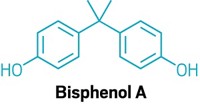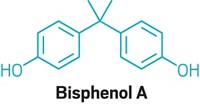Advertisement
Grab your lab coat. Let's get started
Welcome!
Welcome!
Create an account below to get 6 C&EN articles per month, receive newsletters and more - all free.
It seems this is your first time logging in online. Please enter the following information to continue.
As an ACS member you automatically get access to this site. All we need is few more details to create your reading experience.
Not you? Sign in with a different account.
Not you? Sign in with a different account.
ERROR 1
ERROR 1
ERROR 2
ERROR 2
ERROR 2
ERROR 2
ERROR 2
Password and Confirm password must match.
If you have an ACS member number, please enter it here so we can link this account to your membership. (optional)
ERROR 2
ACS values your privacy. By submitting your information, you are gaining access to C&EN and subscribing to our weekly newsletter. We use the information you provide to make your reading experience better, and we will never sell your data to third party members.
Environment
Europeans Confirm Safety Of Bisphenol A
by Britt E. Erickson
October 11, 2010
| A version of this story appeared in
Volume 88, Issue 41
The European Food Safety Authority (EFSA) announced on Sept. 30 that it has found no new evidence to justify lowering its current tolerable intake of 0.05 mg/kg body weight/day for the plastics raw material bisphenol A (BPA). EFSA established that safety level for BPA in 2006 and reconfirmed it in 2008. But recent reports linking low levels of BPA to breast cancer and to adverse effects on the central nervous and immune systems prompted the European Commission to request a comprehensive review of BPA toxicity studies. That review, carried out by a panel of EFSA scientists, found no evidence that low levels of BPA increase the risk of neurodevelopmental effects in rats. The panel members concurred that recent studies on the toxicity of BPA have many shortcomings, particularly with respect to assessing human health, and agreed that they cannot be used as the basis for lowering the daily threshold. The announcement was welcomed by chemical manufacturers in the U.S., which are awaiting the results of a similar review being conducted by FDA.





Join the conversation
Contact the reporter
Submit a Letter to the Editor for publication
Engage with us on Twitter